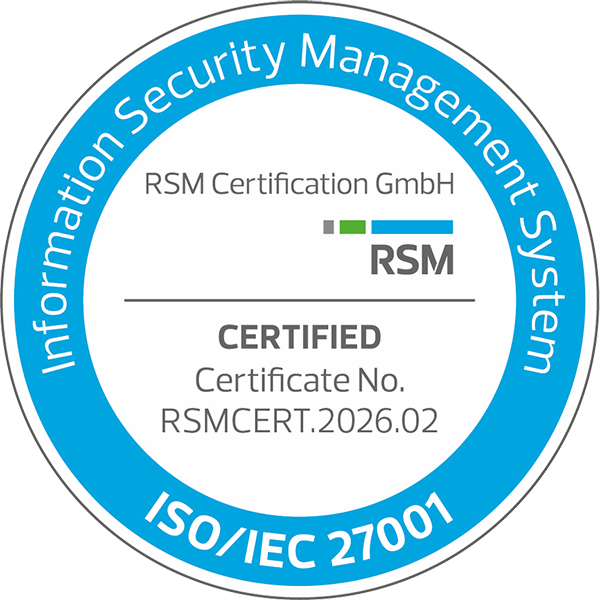BLOG
Digital sovereignty starts at the document
Europe wants to become more independent – digitally, economically and politically. Companies are at the center of this. After all, those who do not control their own data and documents not only lose security, but also their ability to act.
In order to regain control over business-critical information, it is crucial to organize documents centrally, structure them in a comprehensible manner and control them in a targeted manner. Modern document management creates the necessary basis for this.
Why document management will become a strategic issue in 2025
Document management systems (DMS) play a key role in this. They help to control document-intensive processes, protect information, and implement digital sovereignty in everyday life. That is why choosing the right DMS provider is strategic and crucial with a view to the near future.
Control over data: Who decides who accesses it?
Digital sovereignty begins with the question: Who has access to my data – and who doesn’t?
Data sovereignty means that companies themselves determine where their information is stored, how it is processed and who is allowed to use it. Modern DMS solutions create the basis for this:
- Central, structured storage of business-critical documents
- Fine-grained assignment of rights for users and roles
- Seamless logging of all changes
Document management providers based in the EU offer particular advantages here: they are subject to European data protection standards, offer local hosting options and thus strengthen control over sensitive information.
Safety is not an extra – it’s a must
Cyber attacks, data leaks, ransomware: the threat situation is growing. Companies must not only manage data, but also actively protect it. A DMS helps with this:
- Encryption during storage and transmission
- Multi-level access controls
- Audit-proof archiving in accordance with EU requirements
This allows regulatory requirements such as GDPR, NIS-2, the AI Act or ViDA to be reliably met – and the trust of customers and partners to be strengthened.
Think hybrid: Cloud yes – but with freedom of choice
Cloud technologies are indispensable for modern IT. But many companies are hesitant – for fear of losing control or legal gray areas. The solution: hybrid DMS models.
Future-proof DMS solutions are therefore based on:
- Companies decide for themselves which data remains local and which is processed in the cloud
- Employees have flexible access to both worlds via interfaces such as Hybrid Connectors
- European providers guarantee legal compliance and transparency
This creates a balance between scalability, security and sovereignty.
Open instead of dependent: Interoperability as a principle
Digital independence also means: no dependence on individual manufacturers. Proprietary systems with limited compatibility slow down innovation – and make you vulnerable.
- Open interfaces (APIs)
- Integration into existing systems such as ERP, CRM or AI tools
- Flexibility in the choice of partners and technologies
This protects against lock-in effects – and creates room for growth.
Being close counts: Why local providers score points
Trust is crucial, especially in the SME sector. Personal contacts, short distances and cultural understanding make all the difference – especially when it comes to sensitive issues such as data protection and compliance.
- Local providers know the legal framework
- You speak the same language – both professionally and personally
- You support projects on a long-term basis and in a spirit of partnership
Digital sovereignty is not a product – it’s a process. And this is best achieved with a partner who is really nearby and close to you.
